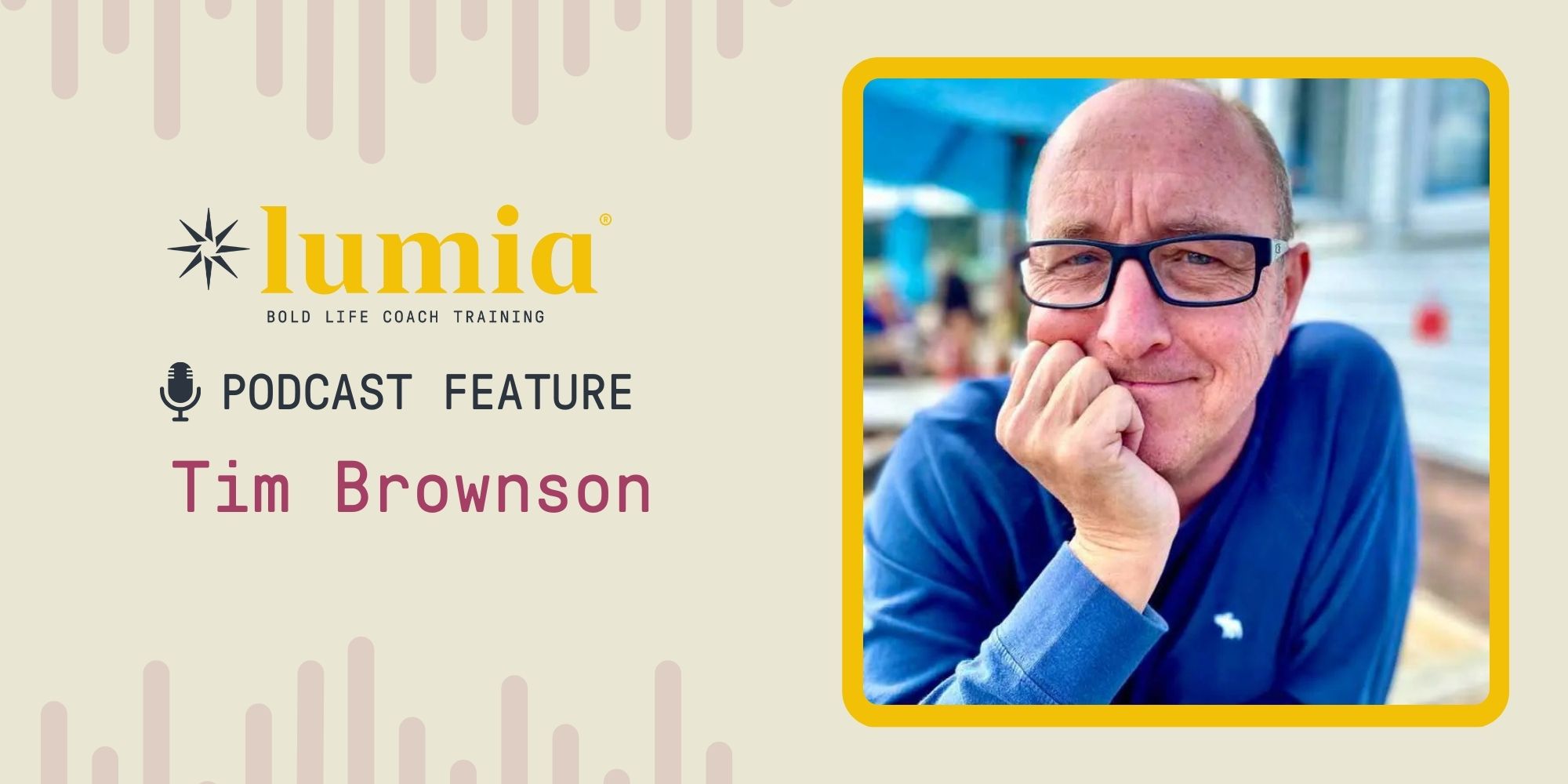How to Apply the Japanese Art of Self-Reflection in Coaching
In this podcast episode John and Noelle explore Naikan, a self-reflection process you can use to support coaching clients expand perspective and gratitude.
The Everything Life Coaching Podcast, featuring Lumia Coaching founders John Kim and Noelle Cordeaux, is a deep dive into the experience and business of being a life coach. Subscribe to get new episodes weekly!
Naikan for Self-Reflection
Naikan therapy is a structured method of self-reflection that was developed in Japan in the 1940s by Ishin Yoshimoto, a Buddhist minister. The word naikan translates as “looking within” or “seeing oneself with the mind’s eye.” It was developed as a secular, contemplative practice that could be used by anyone, regardless of religious belief.
As a coaching intervention, Naikan can help clients step back and take a broader view of their life circumstances. By increasing awareness of the extent to which we give and receive each day, the practice supports developing a greater sense of gratitude and the desire to give and serve others.
The adaptation of this exercise that we've used for this podcast focuses on relationships, and has been adapted from Greg Krech’s Naikan reflection exercise by Lucinda Poole and Hugo Alberts (Ph.D.)
How Do We Do It?
The following Naikan exercise can be applied to a client’s relationship(s). Here’s how it works in a nutshell:
- Process: The client reflects on the extent to which they have given to, taken from, and caused trouble within a specific relationship (for example, with one’s spouse, friend, or coworker.)
- Outcome: The process may help to broaden the client’s perspective of the functioning of the relationship, and may increase feelings of appreciation for the other person.
During the process of doing this exercise, be aware that a client may experience feelings of regret and/or shame if they feel that they have taken more than they have given in a relationship. If this occurs, you can help the client adopt a growth mindset by exploring what they could do differently moving forward to ‘restore the balance.’
Naikan Coaching Exercise
During this process, you or your client are invited to reflect on:
- What you have received;
- What you have given; and
- What trouble (if any) you have caused others in the past 24 hours.
You can choose to reflect on these three themes as they relate to one particular person in your life, or it can apply to everyone you may have encountered during the past day.
Spend at least 10 minutes on the exercise to come up with as many items as you can.
Step 1: What have I received?
Consider everything that you have received in the past 24 hours. How have you been cared for and supported by others?
- Was there hot water and soap available to you for your morning shower?
- What kind of food did you eat?
- Did someone serve you coffee?
- Did your partner or a friend pay you a compliment?
- Did someone open a door for you?
- Did someone wash your dishes?
Write down anything and everything that you received today.
Step 2: What have I given?
Now consider everything that you have given to another person, or the world, in the past 24 hours. Examples may include:
- Smiling at a stranger
- Picking up someone else’s trash
- Wishing someone happy birthday
- Washing up someone else’s dishes
- Asking a store clerk how their day was
Reflect on your entire day and write down anything and everything that you gave.
Step 3: What troubles or difficulties have I caused?
Now take a moment to consider what troubles or difficulties you may have caused another person or the world. Examples include:
- Dismissing or being short with someone
- Running late for an appointment
- Cutting someone off in traffic
- Criticizing someone
- Leaving the dishes in the sink for someone else to wash
- Keeping people waiting for a response to their emails or calls
Make note of the incidents and occurances where harm may have been caused.
Conclusion
"The act of reflecting on the degree to which we have taken from versus given back to others can give us new insight on how ‘indebted’ we are to the world in a way that can be useful." - Noelle Cordeaux
Reflecting on these three themes within the context of interpersonal relationships helps cultivate feelings of gratitude and appreciation. It also expands awareness of our moral relationships with others in terms of giving, receiving, and hurting. Holding mindful attention on these questions can foster a desire to give and serve others, and instill a greater sense of realistic humility.
When using Naikan with coaching clients, additional support can be provided by the positive psychology literature, which offers data and interventions in the art of practicing gratitude, acting kindly, and developing resilience.
Episode resources:
Naikan Therapy: Applying the Japanese Art of Self-Reflection
Naikan Therapy: 3 Questions to Put Things In Perspective
Want to Be a Coach?
One of our values at Lumia is that we dare to be different. Our coaches ignore the expectations society tries to impose on them, and seek to live from their own truth instead. If you are ready to step into your power as a coach, come check out Lumia Life Coach Training. Grounded in science, our ICF accredited program features authentic instructors, a robust curriculum, and business instruction to prepare you for liftoff.




.jpg)
.png)